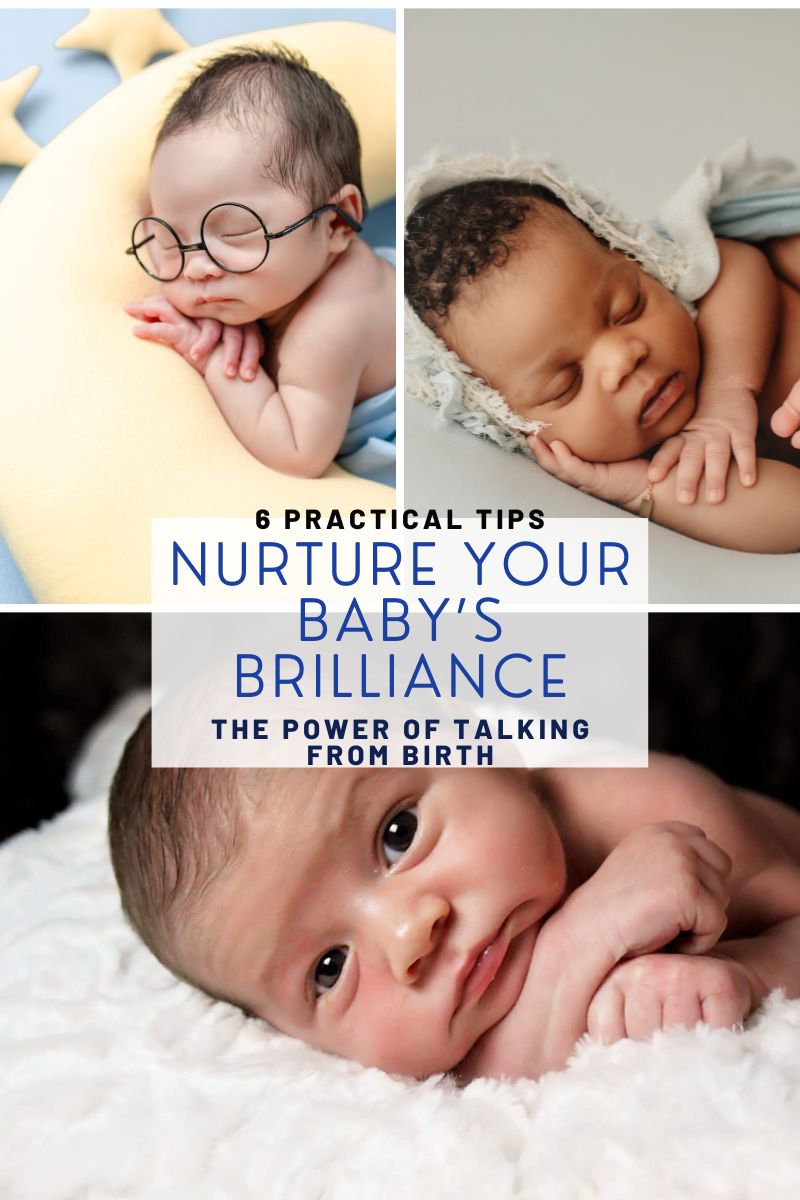
Welcome to my blog
Nurturing Your Baby's Brilliance: The Power of Talking from Birth.I am a children's author and fellow parent.
I raised my kids using the information I shared with you today.
Both my kids are grown and have become medical professionals.
Talking to my babies was insightful, and I learned a lot about baby development as I walked this road with them.
Hello, fellow parents and caregivers! Suppose you've recently welcomed a bundle of joy into your life. In that case, you're embarking on an incredible journey filled with love, wonder, and fun. But did you know that talking to your baby from birth can set the stage for a lifetime of cognitive development and success? In this blog, we'll explore the science behind the importance of stimulating your baby's brain with a good vocabulary right from the start. I'll provide you with practical tips to get started on this fascinating adventure.
Understanding the Baby Brain
Before we dive into why talking to your baby is so crucial, let's briefly explore the amazing World of a baby's brain. From the moment they are born, a baby's brain is like a sponge, absorbing the World around them and creating neural connections at a rapid pace. In fact, the first seven years of life are often referred to as the "critical period" for brain development.
Prominent brain researchers like Dr. Patricia K. Kuhl and Dr. Lise Eliot have extensively studied early brain development. They've found that a baby's brain is incredibly malleable and adaptable. The experiences and interactions a baby has during these formative years profoundly impact their cognitive abilities, language skills, and future learning capabilities.
The Power of Vocabulary
Now, let's delve into the science behind why talking to your baby is so important. Researchers have consistently demonstrated that exposing infants to a rich and varied vocabulary right from birth is a powerful tool for stimulating their brains. The more words a baby hears, the more their neural connections grow, creating a solid foundation for language development and overall intelligence.
According to Dr. Dana Suskind, author of "Thirty Million Words: Building a Child's Brain," a solid vocabulary base in early childhood is crucial for later success in school and life. In fact, studies have shown that children from linguistically rich environments tend to outperform their peers in reading, writing, and problem-solving.
The Glenn Doman Connection
Glenn Doman, a pioneer in early childhood development, also emphasized the significance of early language exposure. He believed that children could learn an incredible amount during their early years, and he promoted the idea of teaching them using a combination of reading, flashcards, and conversation.
Doman's research demonstrated that children have an extraordinary learning capacity from the beginning. Encouraging parents to talk and interact with their babies regularly was crucial to his approach. His work is an inspiring testament to the boundless potential of the infant mind.
Practical Tips for Talking to Your Baby
Now that we've established the scientific foundation let's talk about practical ways to implement this knowledge in your daily life.
Here are some tips to get you started:
1. Talk, Sing, and Narrate: Talk to your baby throughout the day, whether you're changing diapers, cooking dinner, or going for a walk. Sing songs and nursery rhymes, and even narrate your daily activities. Your baby loves the sound of your voice!
2. Read Together: Reading children's books is an excellent way to introduce new words and concepts to your baby. Choose age-appropriate board books with colourful pictures.
3. Engage in Eye Contact: Make eye contact with your baby when you talk. It helps them connect the words to your facial expressions, fostering emotional and social development.
4. Respond to Cries: When your baby cries, respond with soothing words and gentle touch. This provides comfort and helps your baby feel secure and loved.
5. Expand Their World: Take your baby for walks, visit the park, and explore new environments. Describe what you see and experience together.
6. Limit Screen Time: Minimize screen time, especially for young children. Human interaction is far more beneficial for their development.
Remember, your baby is unique, and every child develops independently. Don't worry if your little one responds with words later. What's essential is creating a nurturing and stimulating environment that encourages their intellectual growth and emotional well-being.
In conclusion, talking to your baby from birth is a profound gift you can give them. Your loving words and interactions can shape their future and lead them to success. So, keep talking, singing, and engaging with your precious one. You are their first and most important teacher, and together, you're embarking on a remarkable journey of discovery and growth. Enjoy every moment, and watch your baby's brilliance unfold!
Cecile Lewis
Children's Author
The Spotty Little Tiger
Literature for Littles Series
Post Views : 386